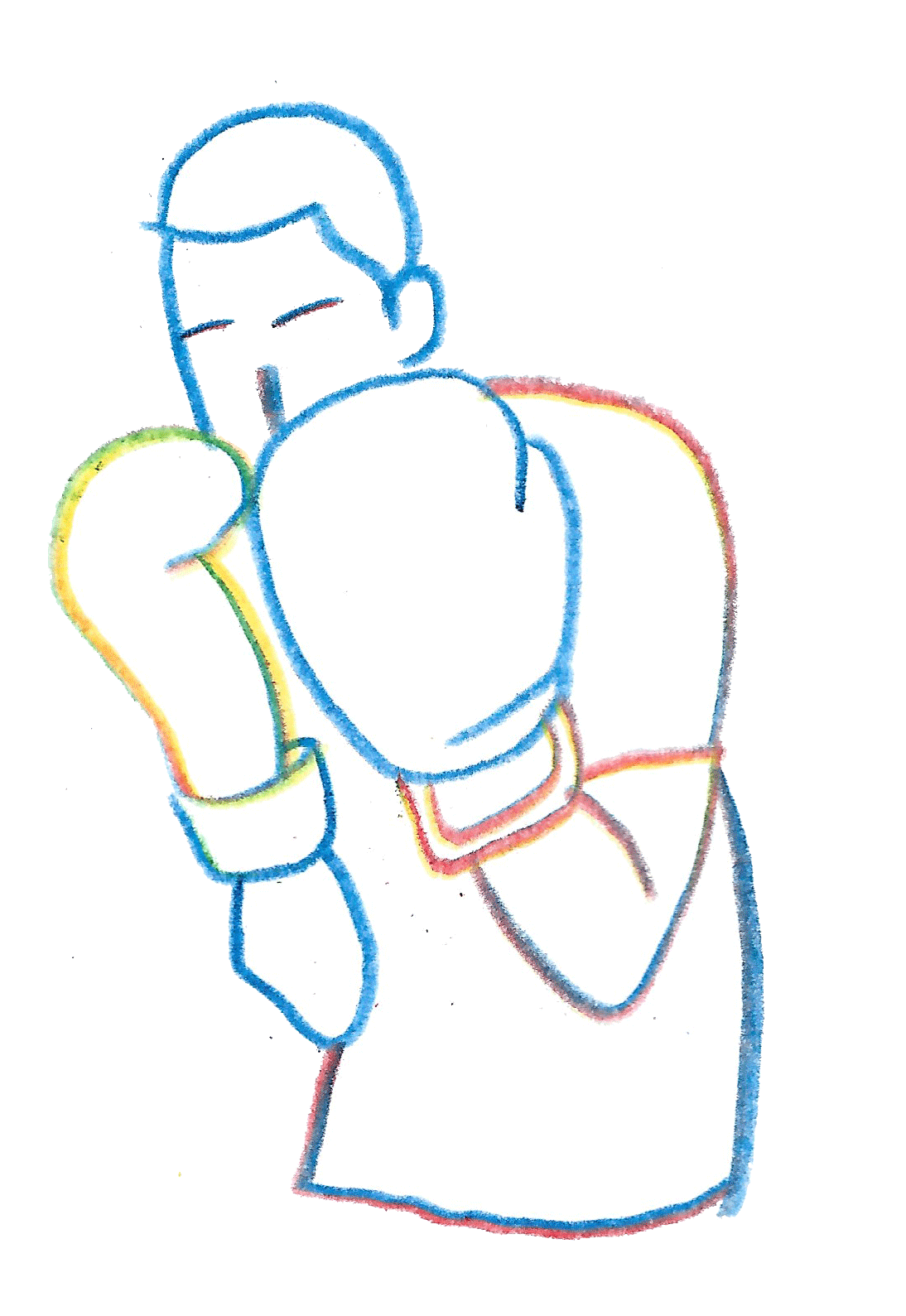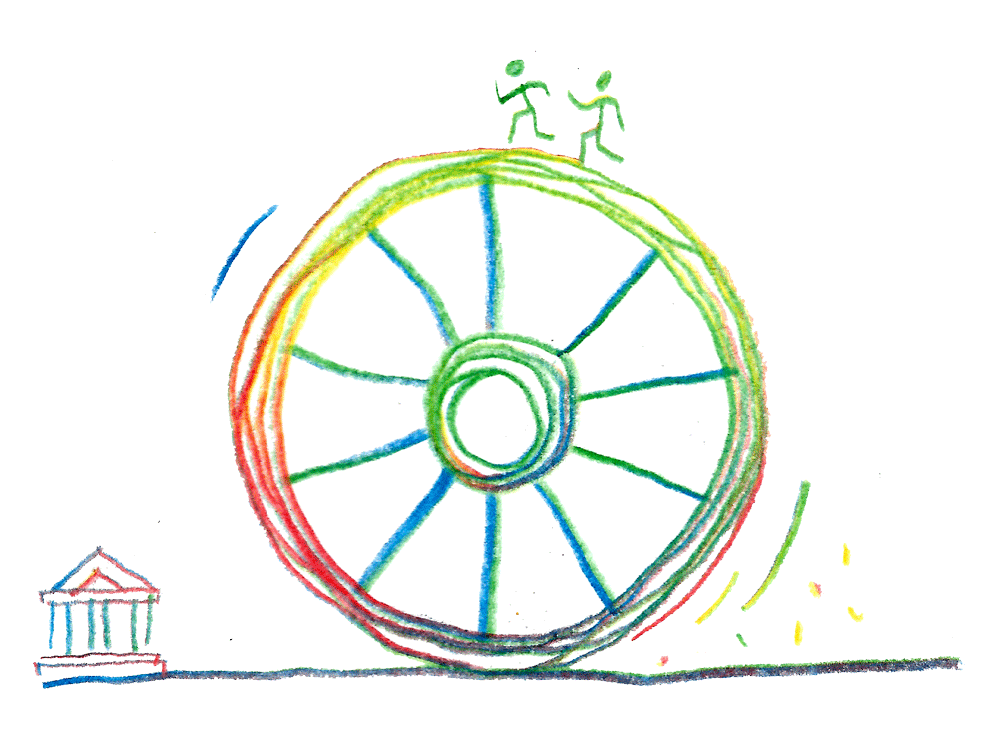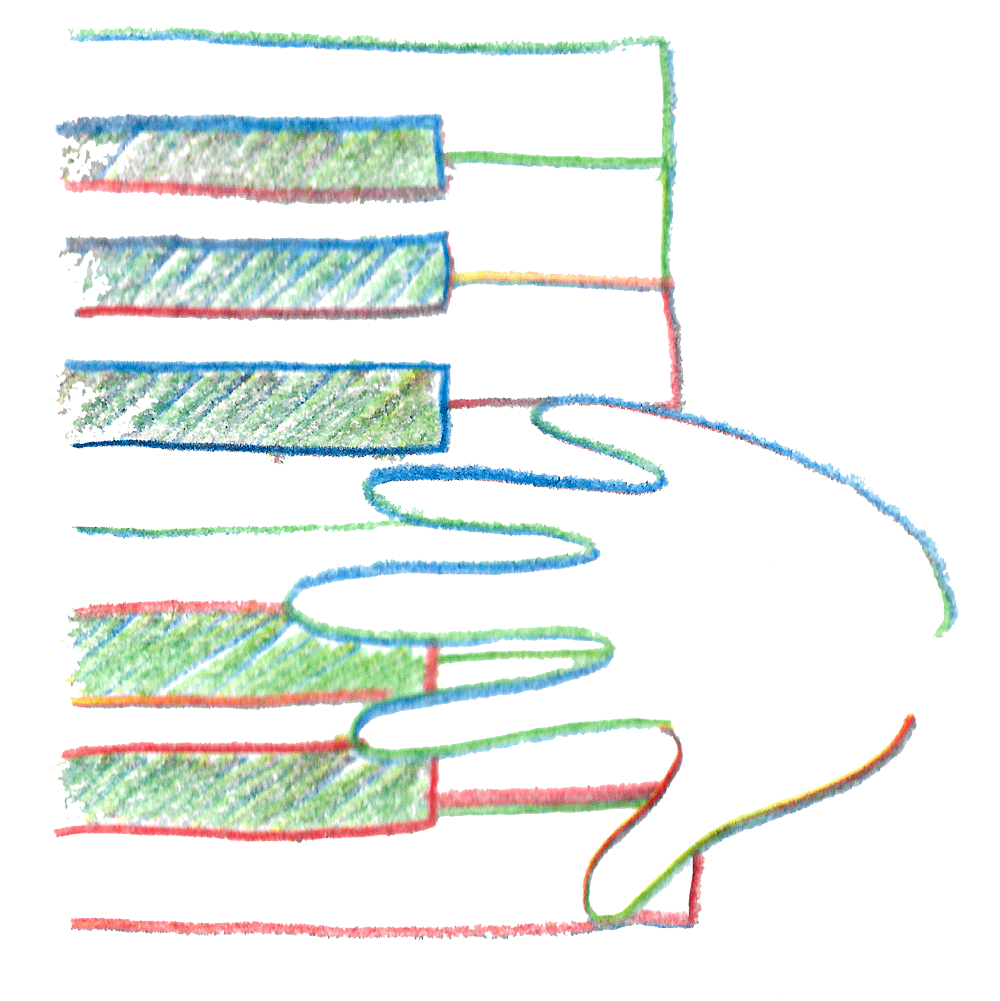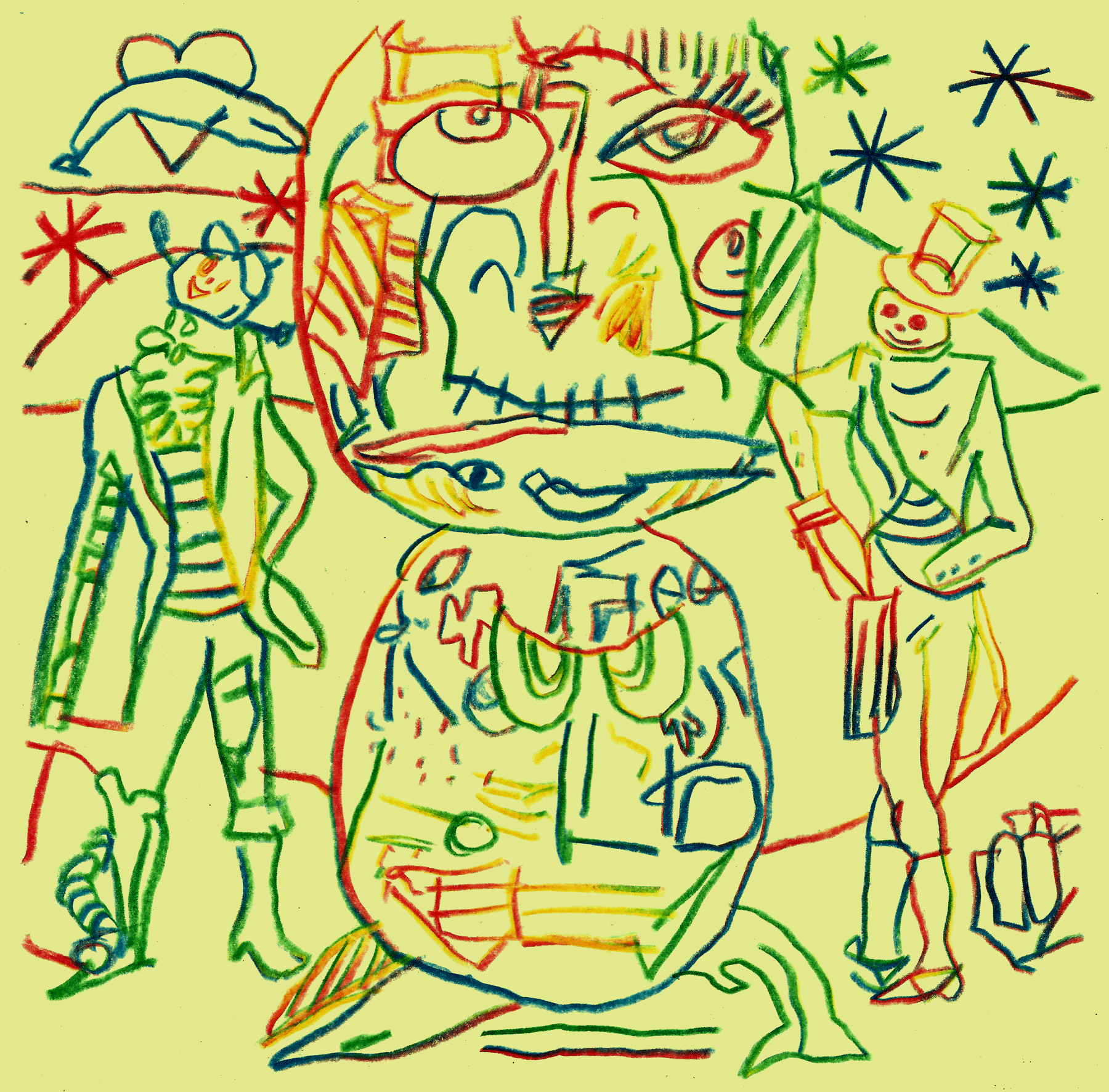Earlier this year Bill Callahan released Gold Record, another very good album. He’s done that so many times now I have trouble remembering what it’s like to hear his new record and be disappointed. I’m thinking it might have been 2007, with Woke on a Whaleheart, his first release under his own name, but I’m not sure about that, because I don’t have any specific memory of hearing it that year. But he hasn’t issued as uneven a collection since. Produced by Callahan and Neil Michael Hagerty of Royal Trux, Woke on a Whaleheart has more bells and whistles and Callahan’s voice, typically close-mic’d and dry, is often misted with reverb, and sometimes sounds distant. The more I’ve listened to Woke the more I’ve warmed to it, but there are three songs from it I regularly play independently of the rest of the LP, and they are among my favorite Callahan compositions. Each of these tracks represents a different way of positioning myself in the relation to a song, and a different strategy for mapping that song onto my life.
One of these is “Sycamore,” easily in my Bill Callahan top 10. Doing some excavation of email and old blog posts, I see that in early 2011 I was calling it among my favorite songs of all time, which I’d say is still true almost a decade later. I listen to it imagining a better way to be—it’s very much a song about my internal life, how I picture myself as I move through the world. It’s filled with little bits of advice, which is something Callahan likes to offer in songs. He doesn’t seem so self-absorbed to believe the lessons he offers have any universal application, but some of them are solid.
“You won’t get hurt if you just keep your hands up,” goes one line, and I hear it and think immediately of Mike Tyson, late popularizer of the “peek-a-boo” boxing stance, which he learned from his former trainer Cus D’aMato. It involves holding your arms vertically in front of your chest, neck, and face, so they’re ready to absorb blows. So that’s one good thing to remember. And then there’s “Sycamore got to grow down to grow up”—pay attention to your roots, build a foundation, know that it’s what people can’t see that’s keeping you alive.
“Sycamore” is basically about owning who you are, as well as the essential truth of aloneness. The times when I most enjoy writing and want to write more are often times of isolation, when I’m feeling cut off from the world and also from the people around me that I love. During these times, writing gives me a certain amount of control and I can focus my loneliness like a mirror with a beam of sunlight, directing those feelings toward the page. And though every time I write something I feel shame and fear, there is also, mixed in with that, a sense that this is something I can sometimes do well.
In April 2011, when I was turning things like this over in my mind, sometimes alone in my apartment, sometimes waiting for the bus at the corner of Western and Leland that would take me to work, I was more often than not playing “Sycamore,” thinking about growing into yourself and feeling comfortable and pausing, if just for a moment, to realize that you’ve gotten somewhere.
So that’s me, alone in the world, no one else exists. That’s “Sycamore” to me, and I suppose that’s why it feels like some kind of anthem. The person in “Sycamore” doesn’t have to negotiate human relationships, he only needs to be. All he has to worry about is keeping those hands up, avoiding the head punches, and if he can pull that off he’ll probably be OK. There are other brilliant lines in the song, one of the most notable about being “too green for the fire” and wanting to be “the fire part of fire.” But people are mostly abstractions, loved in the wild or fought in the gym. They don’t have names, and they don’t really matter. What counts is the reality of the main character’s own existence, he’s alive and feeling it.

And then there’s “The Wheel,” a song I love but can’t quite figure out. Callahan wrote it to sound vaguely like a protest album, something like his version of “If I Had a Hammer” or “We Shall Overcome.” It has a circular melody, and it tells the story of a wagon bound for justice, and anyone moved by the cause can hop on. Each turn of the wagon’s wheel drives more wicked deeds into the ground, and the heavier it gets the more powerful it becomes.
The wheel has turned one more circle
The payload is now immense
So climb aboard all
Climb aboard
Because the heavier we get
The heavier we get
The harder we crush
Callahan speaks each line before he sings it, a last-minute idea in the studio, and it makes the song sound like it’s being sung in Sunday school or around a bonfire at a YMCA camp by a person strumming the guitar and trying to bring more voices into the fold. In a certain mood, I can hear “The Wheel” and take its music at face value, and I think about sacrifice and giving yourself over to a cause, about escaping your ego and dedicating yourself to something larger. A spoke in a “turning wheel bound for good.”
You ever have one line or part in a song that instantly transports you into another song, if only for an instant, and then after visiting that song you bounce back to the one that’s actually playing? That’s me with the verse about being a spoke in a wheel—when Callahan sings it, my mind jumps to Bob Seger’s 1978 song “Feel Like a Number,” from his album Stranger in Town, a follow-up to his breakthrough Night Moves (and a great record in its own right). Seger’s song, which on some days is my favorite tune by him, is a piano-pounding rocker about a guy trying to hold on to his humanity when the world is trying to turn him into a stat. He lists all the ways he’s being classified and tossed aside.
To workers I'm just another drone
To Ma Bell I'm just another phone
I'm just another statistic on a sheet
To teachers I'm just another child
To IRS I'm another file
I'm just another consensus on the street
That’s verse two, but at the end of verse one, in the same place as Callahan’s song, Seger sings “I feel like just another, spoke in a great big wheel / Like a tiny blade of grass in a great big field.”
In Callahan’s song, from one angle, to be a spoke in an enormous wheel is a beautiful thing, because you’re giving up something of yourself to make a better world. To Seger, if you surrender your individuality, you lose everything, and he rails so strongly against this fate that he drives out to the ocean and screams to the horizon “Hey, it’s me!”, as if someone out there might hear him and recognize him as something special. It’s an old idea, but also an idea that I grew up with and internalized, so it’ll probably always be part of me, though I’m not sure how useful it is in 2020.
Anyway, that’s the flash cut that happens when I play “The Wheel,” but now we’re back in Callahan’s song, and there’s something I forgot to mention about it: While it sounds like it’s supposed to be big-hearted and inspiring and sometimes I can be swept along by its emotional energy, it’s also a cynical song and Callahan, then widely considered a misanthrope, can’t help but undercut its momentum. Part of the story of “The Wheel” is told from the perspective of a woodbee, aka a carpenter bee, an insect that burrows into wood to create a nest.
“Make my home in a stable spoke, Lord,” Callahan sings, and while we might guess that this bee is along for the ride because he wants to set the world right, the reality is that he’s just looking for a place to sleep, and he’s compelled by instinct to seek a surface like our mighty wheel. And the presence of this carpenter bee in our huge turning object, a millstone ready to drive bad deeds into the ground, undermines the whole enterprise: the heavier the wagon gets, the more folks climb aboard, the more likely the edifice is going to come crashing down, because of what this woodbee is doing to the structure.
Is this a metaphor for something, or just a grim joke? I’m not entirely sure, and I’ve seen very little written about “The Wheel.” But the song is for me one that I can listen to and hear it from multiple angles at once—a call to arms, an anthem about unity, a fable about the unchangeability of one’s essential nature—and the music carries me along. I hear it and I think about myself as one unimportant part of some larger plan.

And then there’s “Night,” the eighth song on Woke. I look again at my excitement for how I couldn’t stop playing “Sycamore” in 2011 and remember what else was going on around that time and what looms largest is that my father had been diagnosed with Parkinson’s disease about eight months earlier. Parkinson’s is not rare and many people suffer from it for years without it completely altering their life, but for my father, the effects were rapid and acute and within a couple of years very little in his life resembled what it had been before the diagnoses.
The mid-2010s were the most challenging period because he still lived at home with my mother but probably shouldn’t have. She wasn’t capable of caring for him. By January 2017, he moved into assisted living, and that’s where he died about 20 months later. But I’m thinking now about 2013 through 2016, and how impossibly difficult his life became, where, if he missed taking his medicine by 30 minutes, which happened all the time, he might be completely paralyzed, sliding down in a chair, unable to control his body.
The other part of Parkinson’s was related to a broader condition for those who experience dementia, which is sometimes called “sundowning.” On the organization’s webpage, The Mayo Clinic describes the cluster of conditions and behaviors that goes into sundowning and one of them is “Difficulty separating reality from dreams.” For my father, particularly during those mid-decade years, and especially after the sun went down, these distinctions evaporated.
I spent quite a few nights at my parents’ place during this period and when I would stay over I’d tend to my father when he’d get up in the night, which was often. And sometimes he’d wake up from a dream and it would continue for many minutes. He would be living inside of it and would tell me about it in great detail. Sometimes these dreams were terrifying, about people or things that were trying to harm him, and sometimes they were innocuous, and he would describe to me something like, say, being in a mid-20th century arcade somewhere in Chicago. He could see all the machines and he would tell me about them, and I’d ask questions and he’d try and respond. After a while he’d say, “I’m not sure if that really happened” but that was the thing—he wasn’t sure. And then occasionally in the days or weeks to follow, he would recount the dream as a genuine memory, and he could access those details.
I think about those dark hours with my father when I hear “Night.” It begins with a direct, repeating motif, the kind Callahan has used on songs from time to time—on “Teenage Spaceship” he used both piano and guitar, here it’s piano alone. The piano part is so simple, it reminds me of something a kid who has just started taking piano lessons might stumble upon, and how when you notice that a handful of notes can stir deep feelings and you get a sudden sense of the power of music, and how no particular virtuosity is required to tap into it.
So “Night” makes me think of childhood a bit, maybe even myself at an out-of-tune upright when I was 9 years old, noticing how I could play C, F, and D chords as individual notes rather than all together, and that I could play an improvised melody with my right hand that could create a small ache when a particular note landed in a certain way. But mostly I think about my father, and those years, and those long stretches before the sun came up.
“We do not know how things work,” Callahan began, and with my father, indeed we didn’t—I’d read the books and scoured the websites and I could only get approximations and models and best guesses. Then comes “We do not know where you go in the night / Through the door / Through the door that holds you.” And I didn’t. I had no fucking idea. Sometimes I could try to follow him there, but I could only go so far. I leaned against the jamb and listened while he tried to describe it to me, but I could never quite see it, and he was alone in there, and he knew he was alone, and it was scary.
“And stars fall on,” Callahan sings in the last part, but I couldn’t look at them. We closed all the curtains in the night because if my dad saw the room he was in reflected and then the evening darkness in the background behind it, he’d invariably see things that were real to him, and they sometimes seemed menacing. People standing in the driveway, someone no longer living. So, no stars. But “Night” still gets at something deep and real, memories that I don’t like revisiting, the kind that turns your bone to glass, to quote an earlier Callahan song. But this song leads me toward these images, kind of holding my hand as I inch closer. “Sycamore” is about me, “The Wheel” makes me think about the world, and “Night” conjures a vision of my father, in his chair, sitting just a few feet from me while he’s a million miles away.




